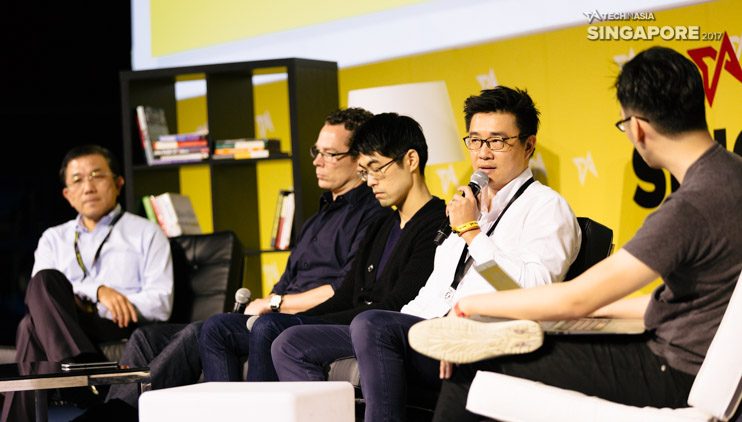
Photo credit: Pixabay.
Tech in Asia data for Southeast Asia shows a four-year low in the number of deals from seed stage to series C in this year’s first quarter, continuing the reality check of 2016. Ecommerce deals have fallen off the most in the last three quarters, and the much-touted fintech is yet to take off in deal-making.
Top investors from the region weighed in on what this means for Southeast Asia’s startup scene yesterday, in a panel discussion with Tech in Asia managing editor Terence Lee at our Singapore conference. And the consensus is that the hard times are good for the ecosystem in many ways.
“India today is almost wiped out, and Southeast Asia is going in the same direction,” says Vertex Ventures CEO Kee Lock Chua, referring to a series A funding crunch and drop in valuations. “Some people will lose their shirts or even pants.”
But he sees the bright side of it. Gone are the “crazy valuations” of a hot market and gold rush for short-term gains. It’s a time to remind founders they’re building a company over seven to ten years. And, “when times are bad, founders listen.”
Rakuten Ventures MD Saemin Anh sees a maturing of the ecosystem as startups build their product before reaching out for funding. “Founders are getting more knowledgeable.”
See: As Southeast Asia’s tech funding sinks, the search is on for a new identity

From left – Kee Lock Chua of Vertex Ventures, Pieter Kemps of Sequoia Capital, Saemin Ahn of Rakuten Ventures, Hian Goh of NSI Ventures, and Terence Lee of Tech in Asia at the ongoing TIA Singapore conference. Photo credit: Tech in Asia.
Deep tech
NSI Ventures partner Hian Goh points out from the Tech in Asia data that even though the number of deals is down, the average deal value is holding up. This tells him that better companies are getting funded now with a good runway. “When the noise goes down, the signal gets stronger.”
If ecommerce and fintech are getting saturated with big players, would investors want to see new opportunities to invest in deep tech? And is Southeast Asia ready to go there, asks Lee.
Sequoia Capital principal Pieter Kemps sees some evidence of it.
Earlier, enterprise startups out of Asia were mostly being built in India, with “so many great engineers” graduating from the IITs and working for multinational companies before turning into entrepreneurs. Southeast Asia, with less engineering talent available, had mostly B2C plays, but “now we’re seeing more SaaS,” says Kemps.
Connections between Southeast Asia and Silicon Valley as well as India are getting stronger, too, he points out, giving the example of Indonesia’s Go-Jek acquiring two startups in Bangalore for their engineering talent – a deal that Sequoia helped make because it straddles both ecosystems.
Fragmented market
One issue startups and investors face in Southeast Asia is figuring out how to scale in a fragmented market. So NSI Ventures spent a considerable time, says Hian Goh, preparing Singapore healthcare startup CXA for its recent US$25 million series B round, which put it in the league of US$100 million companies.
CXA is an aggregator of insurance and wellness providers, helping corporates cut their employee healthcare costs. It lets employees choose a tailored mix of wellness and insurance, instead of a one-size-fits-all plan. The funding aims to take it beyond Singapore into other Southeast Asian markets like Thailand, Malaysia, Indonesia, and the Philippines.
But each of these markets is different in language, culture, and internet penetration, apart from availability of healthcare. So even though the obvious strategy is to execute well in one market and then expand across the region, it’s not as straightforward as it sounds.
“For a larger fund, a domestic business may not be sufficient because it’s hard to build to scale in any Southeast Asian market,” says Sequoia’s Kemps. “Just being in Thailand, you might be building a good business but not a large one […] Carousell was great in Singapore, but only scaled when it went international.”
It’s something that startups, too, need to keep in mind when reaching out for funding, says Saemin Ahn of Rakuten Ventures. “A founder in Southeast Asia may need a VC who is looking at the right results from the market’s potential.”
This is part of the coverage of the TIA Singapore 2017 conference on May 17 and 18.
This post ‘Some founders will lose their pants – but that’s healthy’ appeared first on Tech in Asia.
from Tech in Asia https://www.techinasia.com/sea-startup-funding
via IFTTT
No comments:
Post a Comment